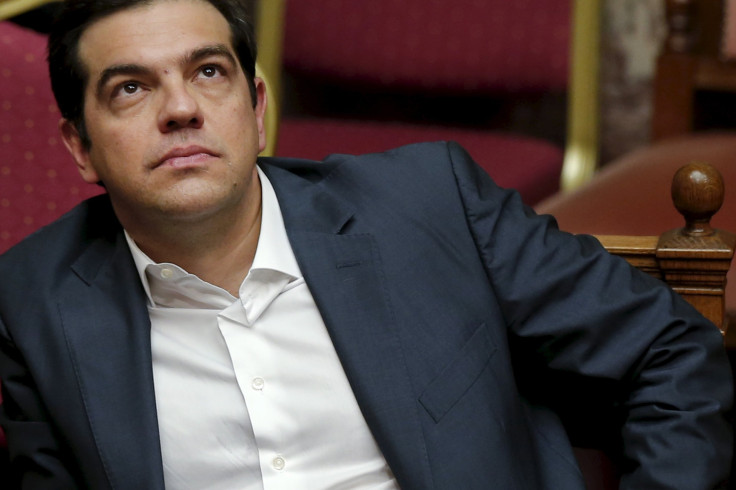Greek Debt Crisis: Prime Minister Tsipras Culls Cabinet Of Rebel Ministers Who Voted Against His Bailout Package; Greece Gets EU Loan

Greek Prime Minister Alexis Tsipras Friday purged his cabinet of the ministers who voted against a contentious bailout package that extended unpopular austerity measures in order to keep Greece in the eurozone. The bailout package was a last-ditch effort to stabilize the economy and involved harsh levels of spending cuts, tax increases and constraints on public spending.
In trying to secure approval of the bailout package from international creditors, Tsipras saw a number of members of his left-wing Syriza party vote against the deal he negotiated. He was forced to forge a coalition with help from opposition parties in a vote that concluded early Thursday morning.
On Friday, Tsipras replaced the country's energy minister and labor minister. He also named a new government spokesman, according to Reuters. In addition to those changes, eight other minister or deputy minister positions were changed.
The bailout package also included major cuts to collective bargaining rights for labor in the country, and required Greece to sell its $1.5 billion electricity transmission network . Earlier, Tsipras had rallied against privatizing the energy network.

Greece’s bailout future passed some important political hurdles later in the day as well. German lawmakers voted to approve providing assistance to the Greek economy, and the European Union announced an interim loan to make sure the country avoids a quickly approaching debt default, according to the Associated Press.
The bailout process, however, is far from over. With EU and German approval, the formal process of negotiations to hammer out the fine details of the agreement are just set to begin between the EU and Greece. Those discussions are expected to last four weeks and will touch on what economic targets and reforms will be necessary for the Greeks to receive their 85 billion euro bailout over the next three years.
Greek banks are expected to open on Monday, putting an end to a tight squeeze on citizens who dealt with closed banks and had cash withdrawals limited during the crisis.
© Copyright IBTimes 2024. All rights reserved.






















